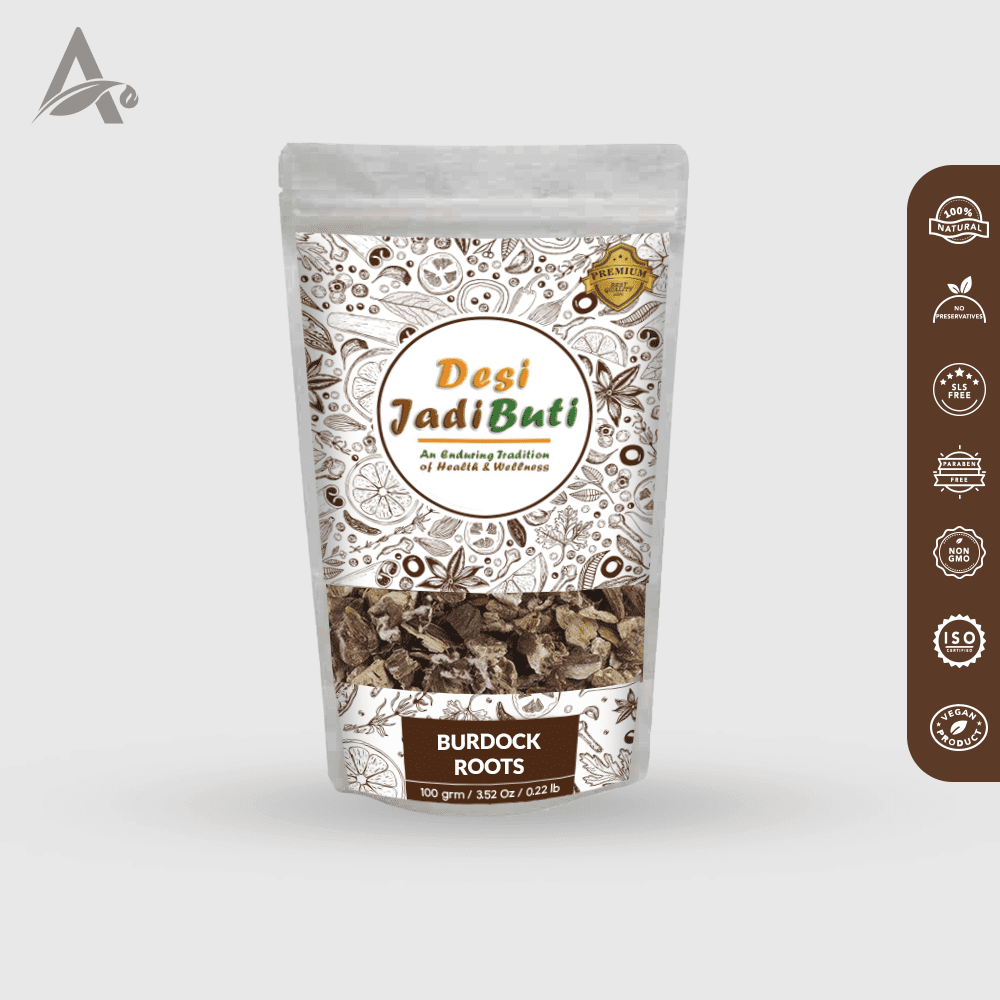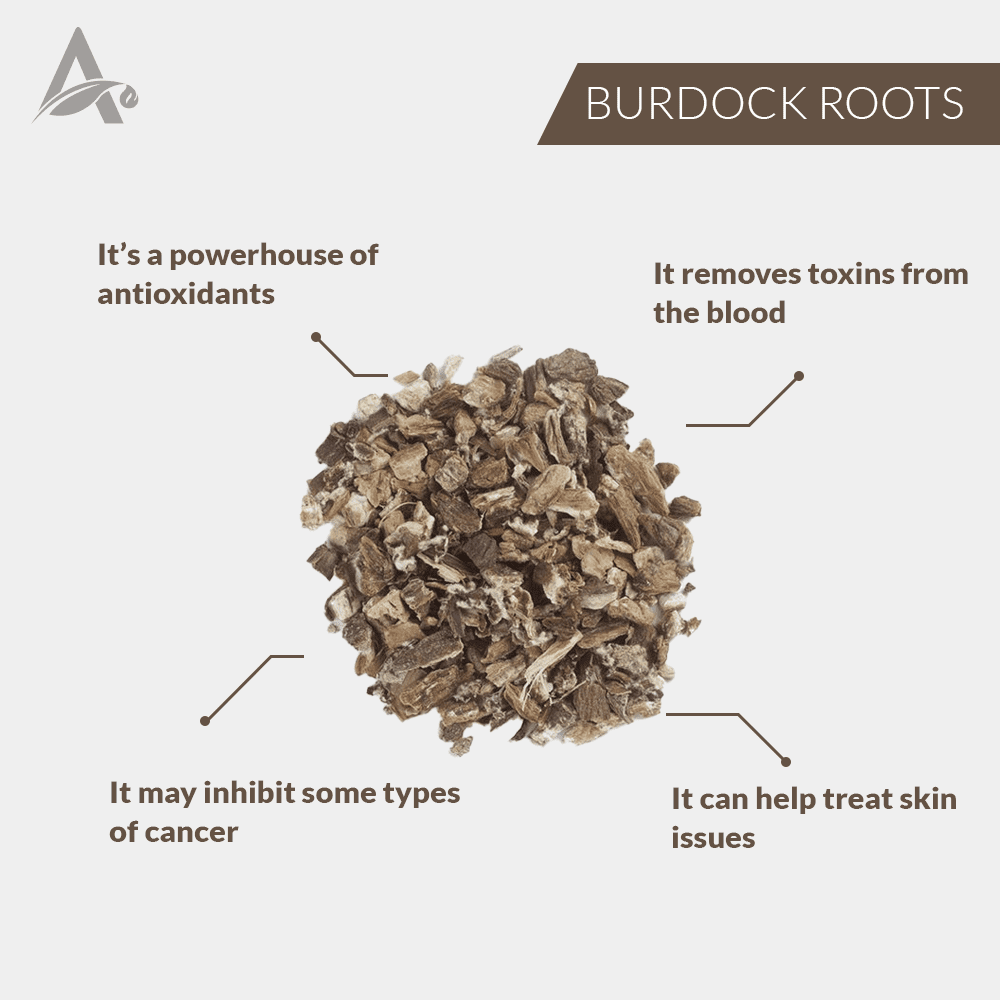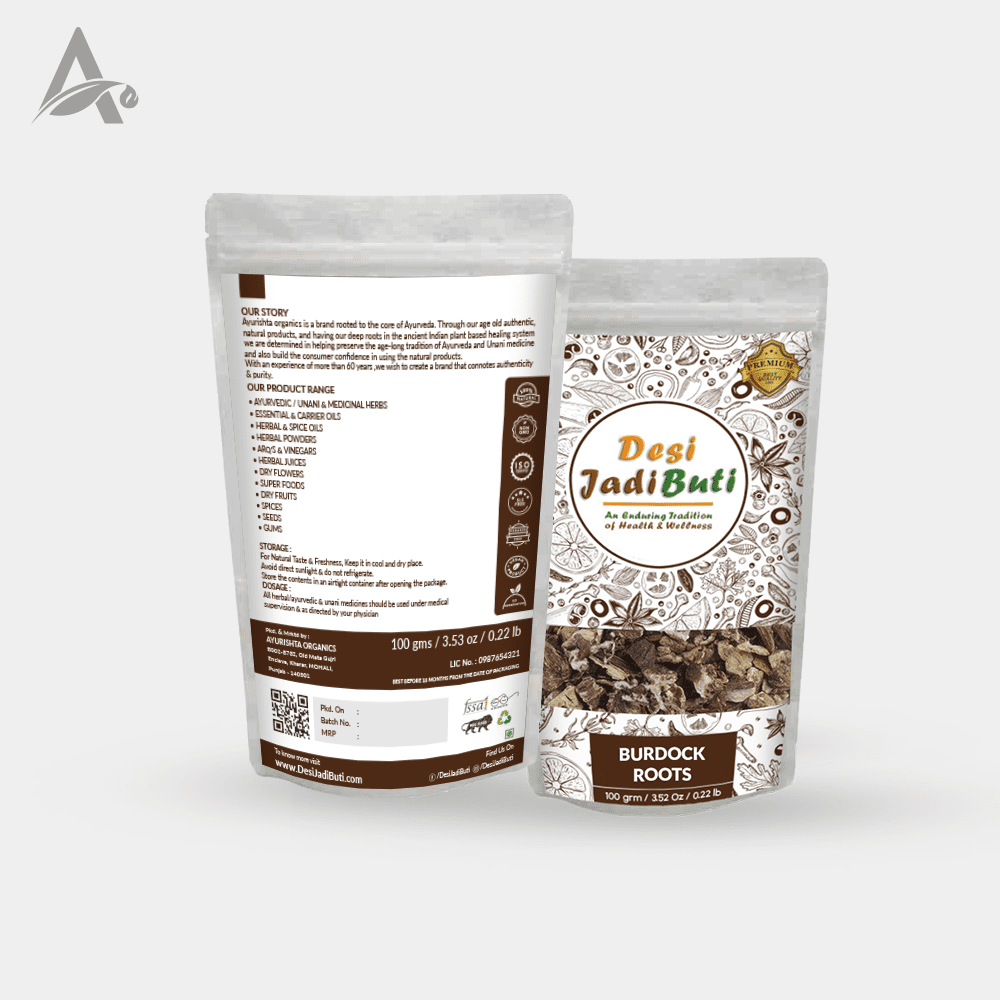BURDOCK ROOTS – JUNGLI KUTH – GOBO – BARDANA – ARCTIUM LAPPA
$4.20 – $26.81
Burdock root is a vegetable native to Northern Asia and Europe, though it now grows in the United States. The burdock plant’s deep roots are very long and vary in color from beige to brown and nearly black on the outside. Burdock root has been used for centuries in holistic medicine to treat a variety of different conditions. Traditionally, it’s been most commonly used as a diuretic and a digestive aid.
In traditional medicine, the fruits, seeds, roots, and leaves of burdock have been used as extracts or teas for a wide range of ailments including colds, gout, rheumatism, stomach ailments, and cancers, and to promote urination, increase sweating, and facilitate bowel movements. It has also been promoted to increase sexual desire, and used for various skin problems. Burdock root is commonly used as food in Asia.
Burdock root contains a number of antioxidants, such as quercetin, phenolic acids, and luteolin, which can help protect your cells from free radicals. These antioxidants help reduce inflammation throughout the body.
It helps us in preventing and curing the following:
- It’s a powerhouse of antioxidants
- It removes toxins from the blood
- It may inhibit some types of cancer
- It may be an aphrodisiac
- It can help treat skin issues.
- Fluid retention.
- Fever.
- Anorexia.
- Stomach conditions.
- Gout.
- Acne.
- Severely dry skin.
- Psoriasis.
Caution:
- The pediatric uses of burdock root, and its safety hasn’t been studied in children. Because of this, you should never give your child burdock root unless under the supervision of your healthcare provider.
- If you’re taking burdock supplements, take only in moderation
- Burdock root is a natural diuretic, so you shouldn’t take it if you’re dehydrated. You also shouldn’t take it if you’re also taking other diuretics or water pills, as it can increase dehydration.
- Pregnant women or women trying to become pregnant shouldn’t take burdock root or supplements.
Other Names:
burdock roots, arctium lappa, bardana, beggar’s buttons, clotbur, edible burdock, fructus arctii, great bur, great burdocks, lappa, niu bang zi (chinese), Arctium, Arctium lappa, Arctium minus, Arctium tomentosum, Bardana, Bardana-minor, Bardanae Radix, Bardane, Bardane Comestible, Bardane Géante, Bardane Majeure, Beggar’s Buttons, Burdock Root Extract, Burr Seed, Clotbur, Cocklebur, Cockle Buttons, Edible Burdock, Fox’s Clote, Gobo, Glouteron, Grande Bardane, Great Bur, Great Burdocks, Happy Major, Hardock, Harebur, Herbe aux Teigneux, Herbe du Teigneux, Lappa, Love Leaves, Niu Bang Zi, Orelha-de-gigante, Personata, Philanthropium, Rhubarbe du Diable, Thorny Burr. Jangli Kuth, Clot-Bur, Dulavratotu Lahaul Pichawag Nepali Kurya
Safety Information:
- For Natural Taste & Freshness, Keep it in cool and dry place.
- Avoid direct Sunlight & Do not Refrigerate.
- Store the contents in an Airtight Container after opening the package.
- All herbal medicine should be used under Medical Supervision only.


OOPS!!
You total cart weight has exceeded 1800 grams. Reduce it to max permissible value for COD fulfillment.


Important!!
We value your decision and will ship your product. Would you like to re-consider on paying ₹___ extra over & above product cost. You can save the same by opting a pre-payment.
Pre-Payment Continue with COD| Net Weight | 50 gm, 100 gm, 250 gm, 400 gm, 900 gm |
|---|
Only logged in customers who have purchased this product may leave a review.
Related products
Himalaya Herbs
RHODODENDRON FLOWER (DRIED) – BURANSH PHOOL – BURANSH FLOWER
Himalaya Herbs
Himalaya Herbs
Himalaya Herbs
Himalaya Herbs
CHADILA – CHARILA – CHAREELA – PATTHAR PHOOL – STONE FLOWER – DAGAD PHOOL – PARMELIA PERLATA
Himalaya Herbs
DANDELION ROOTS – SINHPARNI JADD – SINGHPARNI JADD – BITTERWORT ROOTS – TARAXACUM OFFICINALE
Himalaya Herbs
VALERIAN LEAVES – SUGANDH BALA PATTE – TAGAR PATRA – TAGARGANTH PATTA – MUSHKBALA PATTE
Himalaya Herbs
Himalaya Herbs
DANDELION LEAVES – SINHPARNI PATTE – SINGHPARNI PATTE – BITTERWORT LEAVES – TARAXACUM OFFICINALE
Himalaya Herbs

















































Reviews
There are no reviews yet.